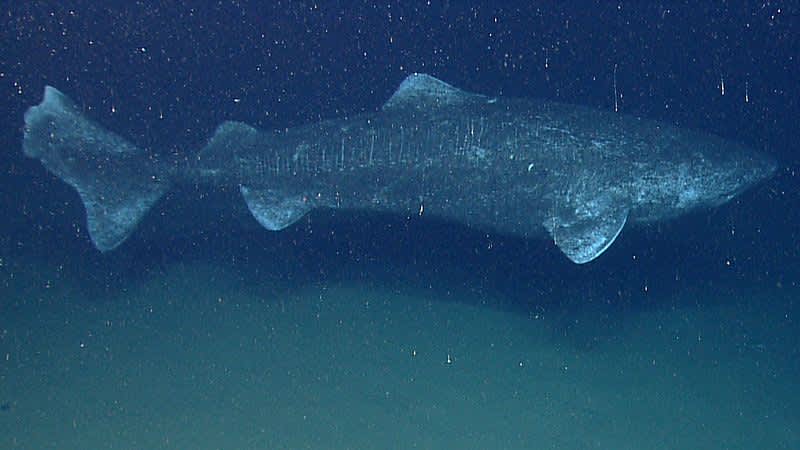Bystanders Rescue Choking Shark after It Devours Moose
OutdoorHub Reporters 11.22.13

Two men in Newfoundland, Canada rescued a bloated shark after it apparently had difficulties ingesting a portion of moose meat. According to the CBC, Derrick Chaulk and Jeremy Ball found the shark by the harbor in Norris Arm North on Saturday. Chaulk initially thought the creature was a beached whale. The roughly eight-foot-long Greenland shark was floundering in the shallows with a large chunk of moose meat and fur coming out of its mouth. It was obviously having trouble breathing.
“A couple yanks and it just came right out,” Chaulk told the CBC.
Greenland sharks, also known as gurry or grey sharks, are one of the northernmost shark species. To survive in sub-arctic conditions, the fish have developed a number of adaptations suited for cold water and scarce prey. One of these tricks is that like certain other fish, Greenland sharks are prodigious scavengers and will take advantage of any meat left close to shore. As one of the largest shark species, these apex predators have been known to carry away parts of polar bears, moose, and other large mammals. In part, this is facilitated by subsistence hunters who butcher game near the water. Greenland sharks play a part in Inuit cosmologies across eastern Canada and elsewhere.
However, sharks that have gone a long period without food have been known to bite off more than they can chew. This is what Chaulk and Ball believe to have happened. After the shark found a delectable morsel of moose hide, Chaulk said it got lodged in the creature’s throat. Helpless, the shark was pulled into the harbor by the tide.
The rescuers pulled the hunk of meat out of the animal’s mouth and watched the shark begin to breathe again. After a short rest, the men used a rope and their own muscle to push the shark back out to deeper waters, where it regained strength and began swimming.
Interestingly, Greenland sharks are often considered a delicacy in the country they are named after. This is despite the fact that the flesh of the species is poisonous and can produce effects similar to extreme drunkenness.

